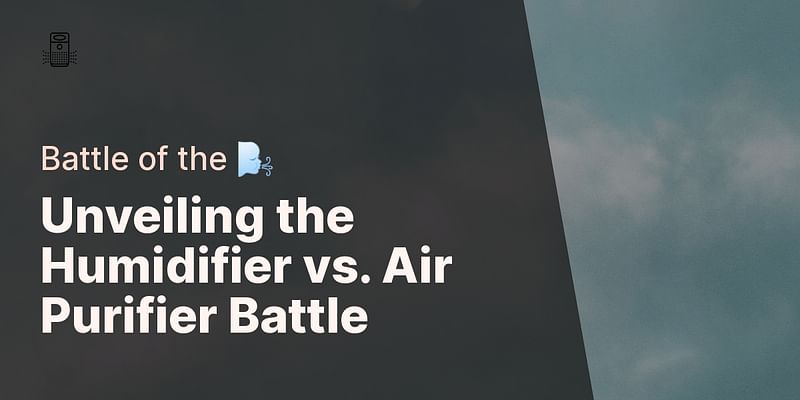Michael is a technology enthusiast who enjoys exploring the latest advancements in air purifier technology. He is always on the lookout for new features and innovations that can improve air quality and make life easier for consumers.
The main difference between a humidifier and an air purifier lies in their primary functions. A humidifier is designed to add moisture to the air, while an air purifier is designed to remove pollutants and allergens from the air. Let me explain in more detail.
A humidifier works by releasing water vapor or steam into the air, increasing the humidity levels in your home. This can be particularly helpful during the winter months when the air tends to be drier due to indoor heating systems. By maintaining optimal humidity levels (between 40% and 60%), a humidifier can help alleviate symptoms associated with dry air, such as dry skin, itchy eyes, and respiratory issues. There are various types of humidifiers, including ultrasonic, evaporative, and steam-based models, each with their own advantages and disadvantages.
On the other hand, an air purifier is designed to clean the air by removing pollutants, allergens, and other harmful particles. Air purifiers use different types of filters, such as HEPA (High-Efficiency Particulate Air) filters, activated carbon filters, and UV-C light, to capture and neutralize these contaminants. By doing so, air purifiers can help improve indoor air quality and reduce allergy symptoms, asthma triggers, and exposure to harmful pollutants. Some air purifiers also come with additional features, such as ionizers and ozone generators, which can further enhance their air-cleaning capabilities.
It's important to note that while both devices can improve your indoor environment, they serve different purposes and should not be considered interchangeable. If you're looking to address dry air and its associated symptoms, a humidifier would be the appropriate choice. However, if your primary concern is improving air quality by removing pollutants and allergens, an air purifier would be the better option.
In some cases, you might find it beneficial to use both a humidifier and an air purifier in your home. For example, if you live in an area with high levels of air pollution and also experience dry air during certain seasons, using both devices can help you maintain a comfortable and healthy living environment.
In conclusion, the key difference between a humidifier and an air purifier is their primary function - a humidifier adds moisture to the air, while an air purifier removes pollutants and allergens. Depending on your specific needs and concerns, you may choose to use one or both devices to improve your indoor air quality and overall comfort.
Comparison of Humidifiers and Air Purifiers
| Device | Primary Function | Benefits | Common Types/Features |
|---|---|---|---|
| Humidifier | Adds moisture to the air | Alleviates symptoms associated with dry air such as dry skin, itchy eyes, and respiratory issues | Ultrasonic, Evaporative, Steam-based |
| Air Purifier | Removes pollutants and allergens from the air | Improves indoor air quality, reduces allergy symptoms, asthma triggers, and exposure to harmful pollutants | HEPA filters, Activated carbon filters, UV-C light, Ionizers, Ozone generators |















